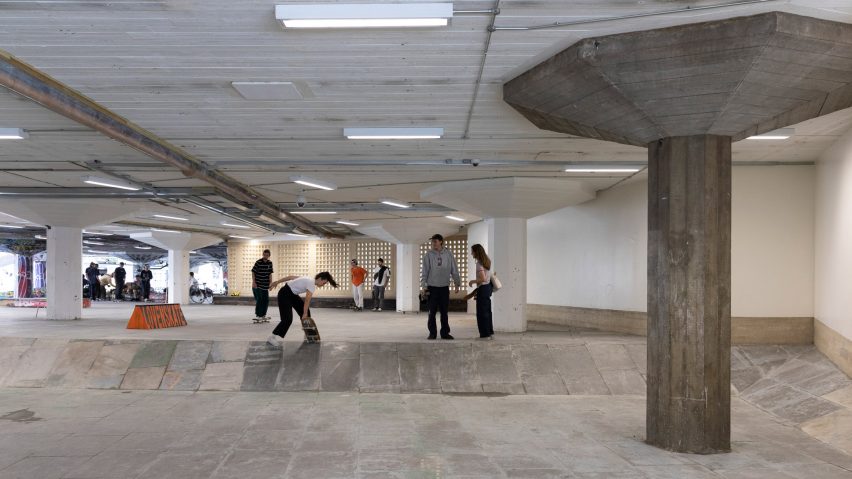
Refurbished Undercroft skatepark reopens beneath London's Southbank Centre
Feilden Clegg Bradley Studios has refurbished and extended the concrete Undercroft skatepark at the brutalist Southbank Centre in London, which is considered the home of British skateboarding.
The restoration has repaired and renovated the space under the Queen Elizabeth Hall at the Southbank Centre, which is defined by the mushroom-shaped concrete columns that support the building above.
The space has been used by skateboarders since the 1970s.
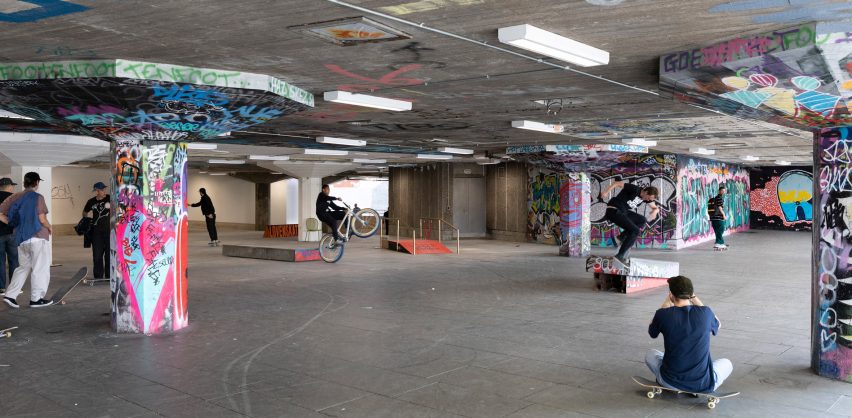
According to the Southbank Centre, the Undercroft is the "world's longest continually used skate spot", and Feilden Clegg Bradley Studios aimed to retain the original fabric and feel of the space.
"Southbank Centre and Long Live Southbank's joint brief required reinstatement of the original design features where possible," said project architect Chris Allen.
"To retain the feel of the original space, careful attention to the 1960s design and materiality was required from architectural and skateboarding heritage points of view."
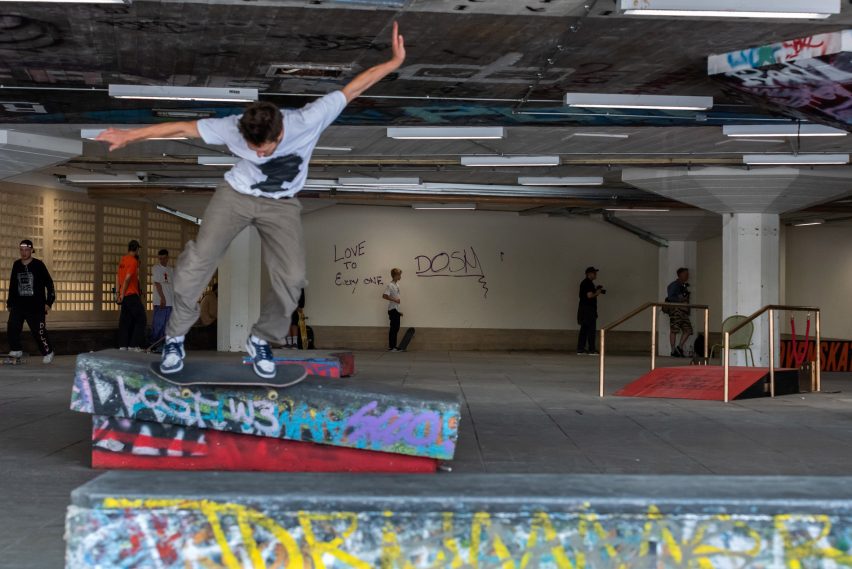
Within the space many of the original skateboard obstacles, including timber sleepers used as a ledge for skateboarders and a concrete jersey barrier, have been restored. Large amount of paving have also been replaced.
To retain the character of the skatepark the architecture studio referred to numerous archive drawings and photography of the space and made use of appropriate materials and techniques.
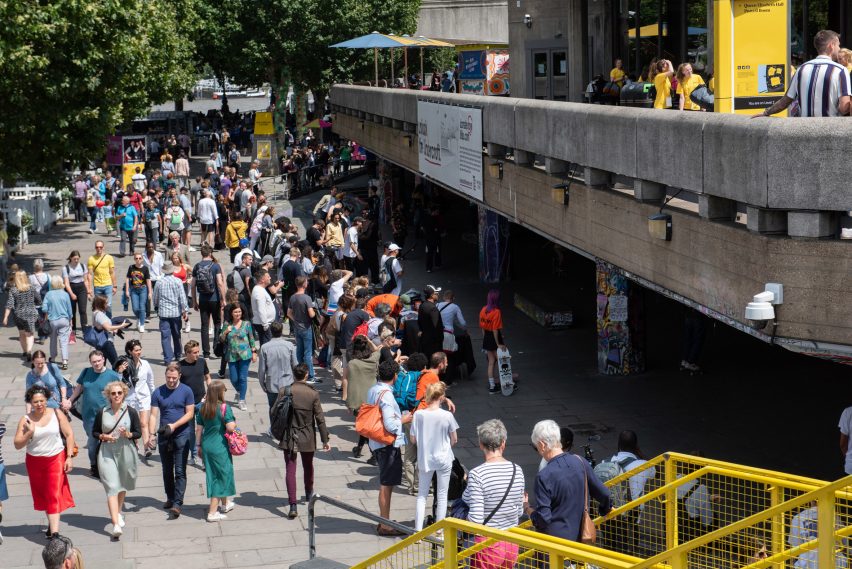
"The use of reclaimed 1960s paving slabs was important to the skateboarding character of the space," explained Allen.
"Where new walls were constructed the principles of the boardmarked concrete upstands of the original building were retained," he continued.
"Using ripsawn timber in identical dimensions, to provide a matching boardmarked texture, was important to reference the craft of the original building, while also providing a robust skate-able surface tolerant to the daily use of the Undercroft community."
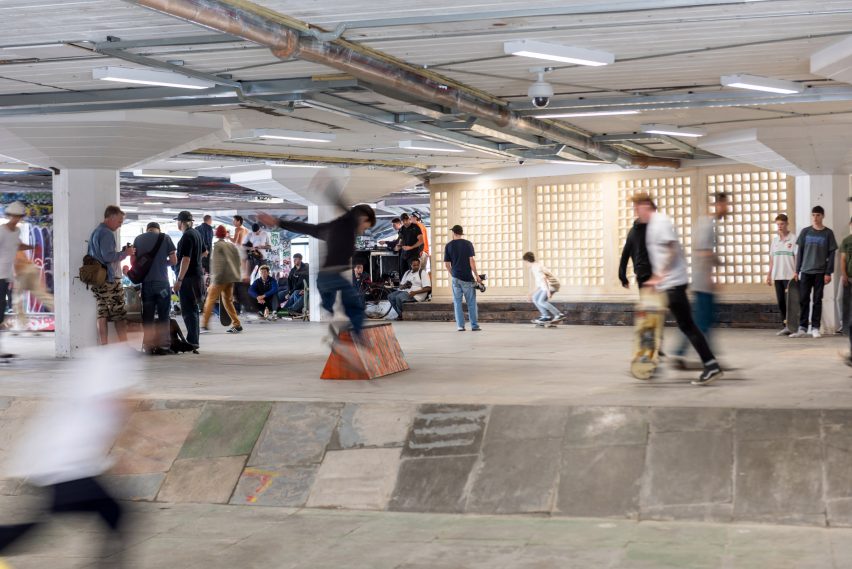
Alongside the original space an additional 420-square-metre area has been added to the skatepark. This space – which has been closed to the public since 2005 – is now an additional free-skating area.
The extension also opens up another entrance to the park, allowing more light in, while a wall made up of glass bricks has been reinstated to bring further natural light into the covered space.
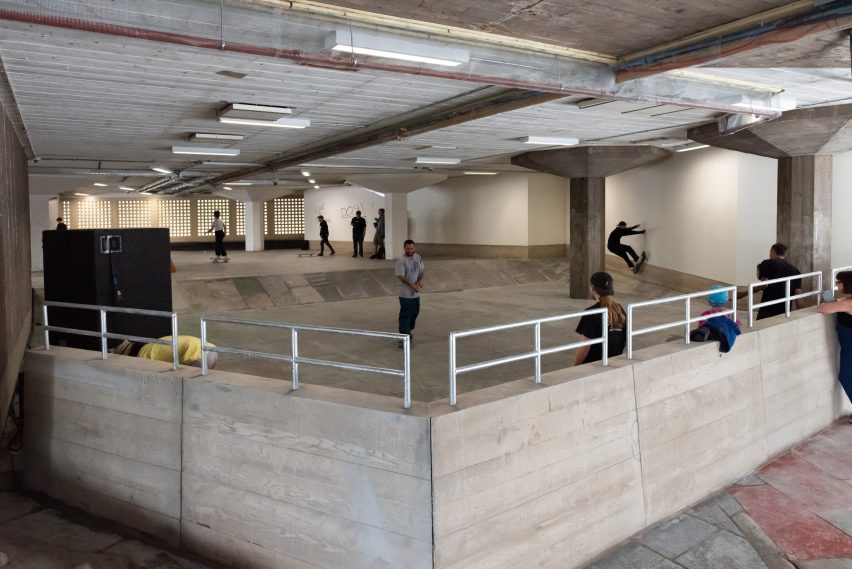
"It has been important to support Southbank Centre and Long Live Southbank in the project to expand the space within the Undercroft," said Allen.
"The potential of the original space for free and creative interpretation has fostered a culturally significant community building a sense of belonging," he continued.
"This process of civic activism has led to a wider dialogue on the importance of free and open public space."
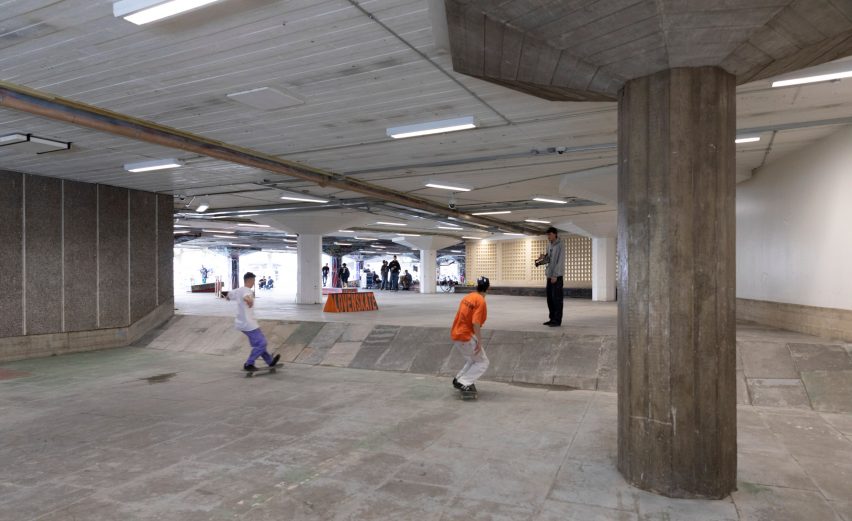
The restoration formed part of a major redevelopment of the Southbank Centre also designed by Feilden Clegg Bradley Studios.
The restoration of the Undercroft skatepark followed a campaign launched by Long Live Southbank to save the park in 2013. It has led to the space receiving protected status under the UK's Localism Act.
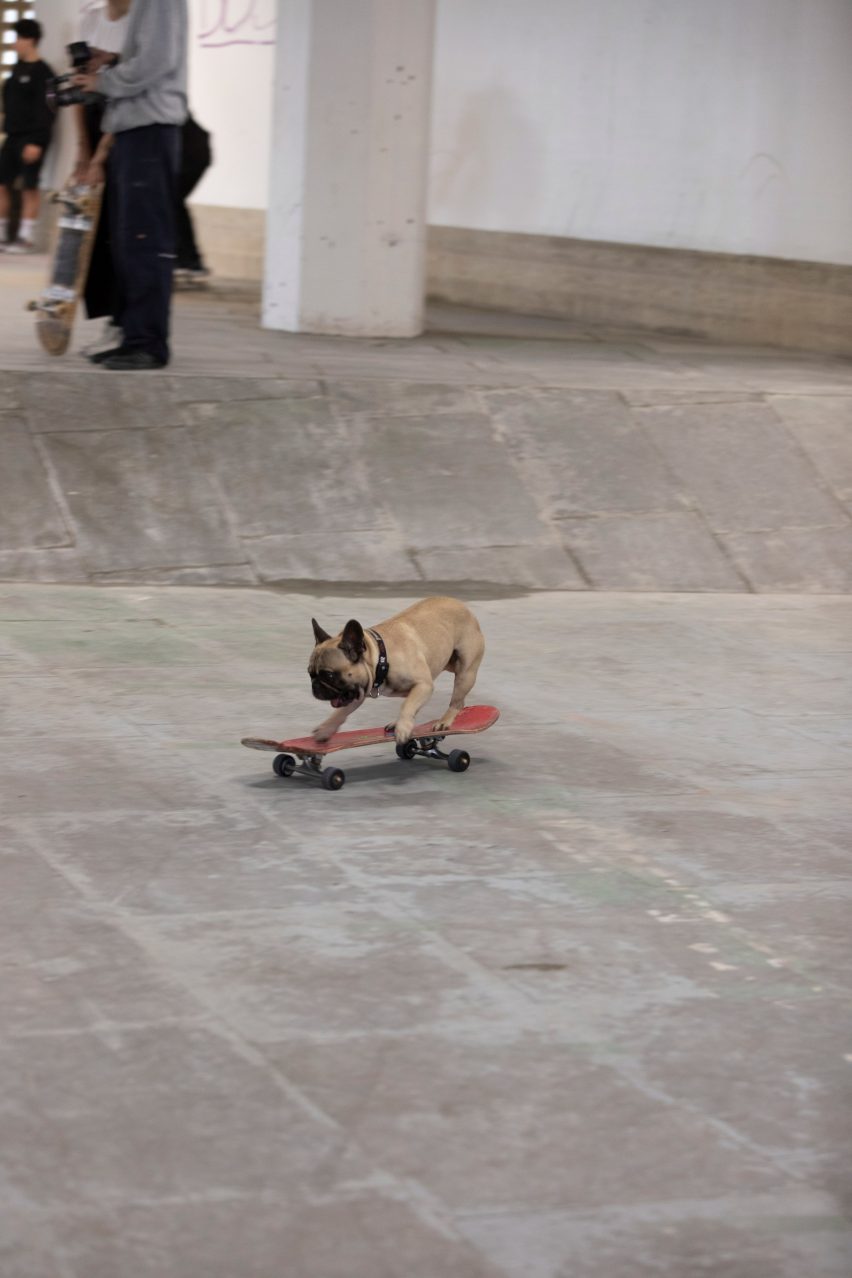
"Long Live Southbank, alongside Southbank Centre have a legal agreement for the space to be free for creative pursuits. Through this they have developed a relationship to jointly support and celebrate skateboarding, BMX-ing and graffiti in the space to continue for generations to come," explained Allen.
"The 1960s brutalist complex will continue to evolve but its future will certainly include the Undercroft community, providing a free space in central London for young and old alike to come together."
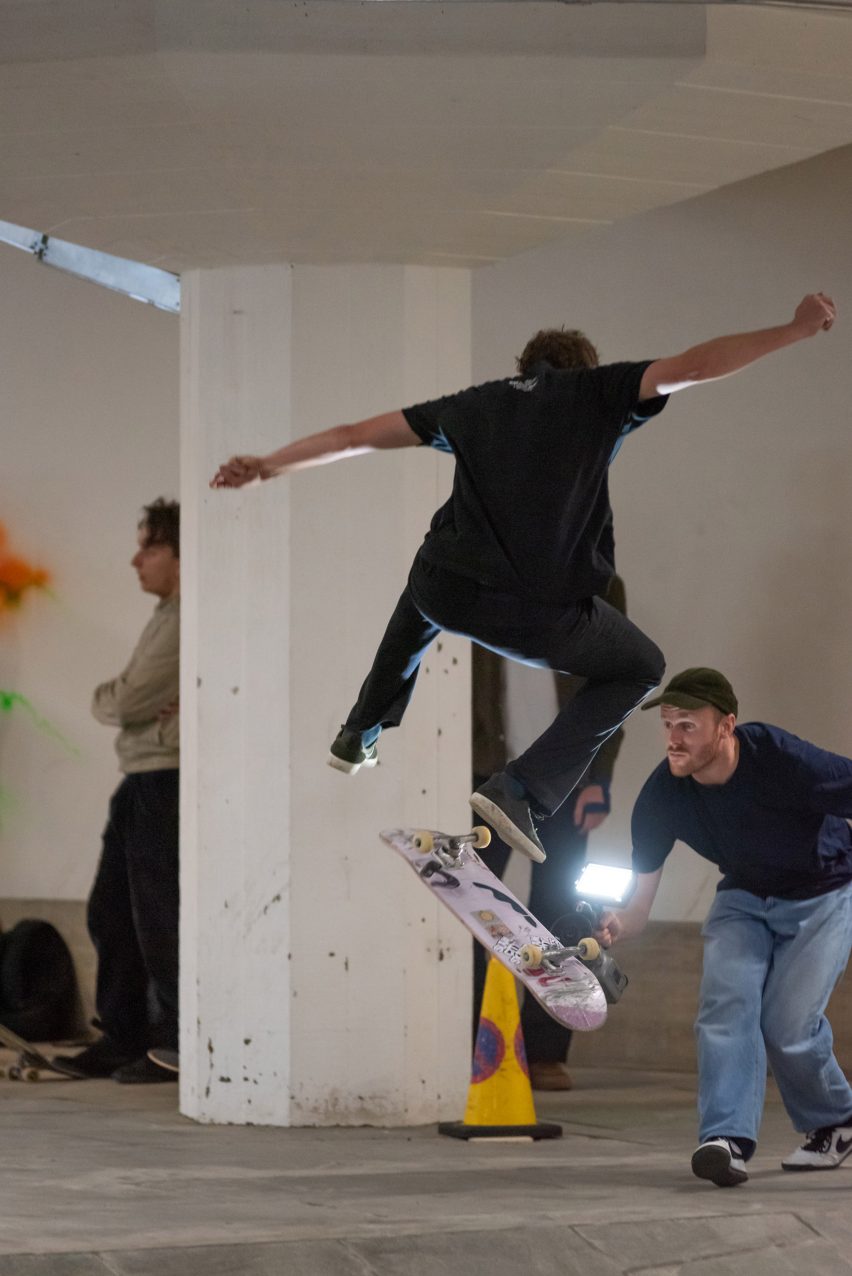
The brutalist Queen Elizabeth Hall is a music venue that opened in 1967. It was deigned by a team led by Hubert Bennett as head of the Greater London Council's architecture department.
A major refurbishment carried out by Feilden Clegg Bradley Studios was completed in 2018. Feilden Clegg Bradley Studios is a British architecture studio established in 1978, which won the Stirling Prize for the Accordia housing scheme in 2008.
Photography is by Richard Battye unless stated.